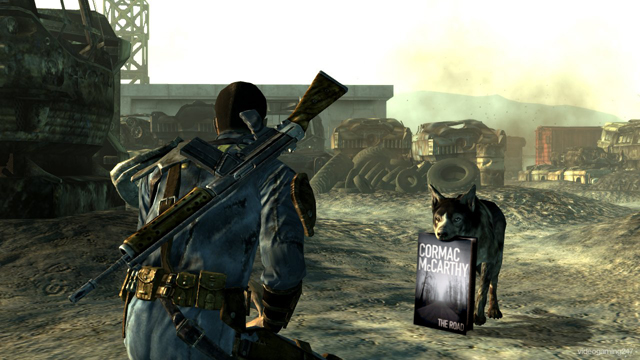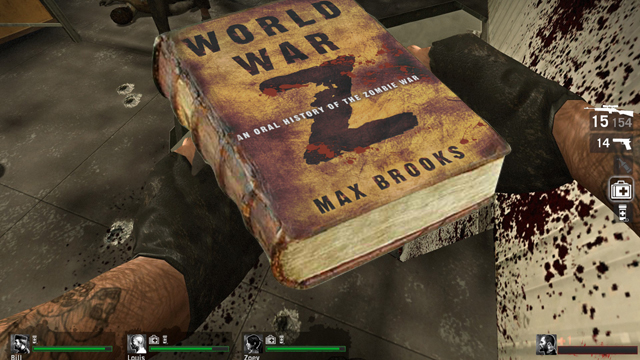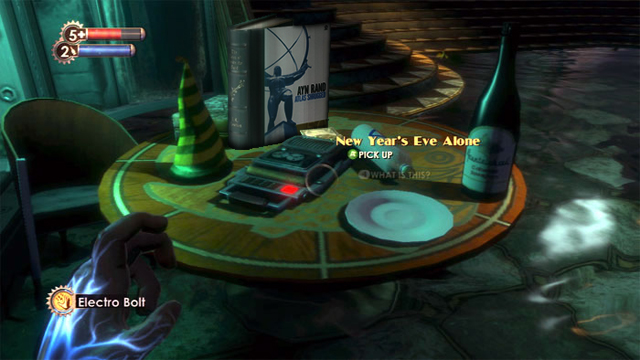This post has not been edited by the GamesBeat staff. Opinions by GamesBeat community writers do not necessarily reflect those of the staff.
Editor’s note: When I’m really digging a game, I find myself turning to similar stories in other forms of media. I loved Pirates!’ ship combat, and that lead me to the Horatio Hornblower books and the Master and Commander movie. Tyler discusses how proper pairings can enrich games as much as a good wine can complete a meal. -Jason

For a very short time, I worked in a white tablecloth restaurant that could be called “fine dining.” It was known for its high-quality dry-aged beef and took special pride in the wine pairings.
For anyone who’s not familiar with it, the goal of pairing is to find the right wine for the right steak. Cabernet Sauvignon ages well in oak and often has a sweet, smoky taste. This flavor goes perfectly with red meat but not so much with poultry or fish (which are usually paired with a white wine). Why is this important? The idea of pairing is that by combining two ingredients, the attributes of each complement the other and turn a plate of food in to a one-of-a-kind meal.
Let’s see how this applies to video games. A few months back I read The Road by Cormac McCarthy. At about that same time, I also dove back in to the Capitol Wastes with the new DLC for Fallout 3. I was halfway through this bleak, depressing book when I loaded up my old save — and The Pitt never looked so full of despair. It was like I’d been playing the game with blinders on up until that point.
As much as I love Fallout 3, my mind can drift when I play it (especially during the long treks to those un-quick-travelable locations). At the same time I noticed that whenever I let my mind wander — in traffic, at work — I always thought about The Road.
We’ve all read a sad story or a tense chapter and felt affected after we put the book down — it’s like seeing blocks everywhere after playing a little too much Tetris. Pull an all-nighter with Left 4Dead and follow with some World War Z and tell me if the next day you don’t absentmindedly examine your workplace for prospective safe houses. A good book will refuse to let you keep your mind off the story after you close the cover. Likewise, a good game will refuse to let you take your eyes off the screen while you play it.
The Road had put me in the headspace of characters in a postapocalyptic world. By doing that it gave more of an impact to playing Fallout. I guess that I started taking the game a little more seriously. I turned the difficulty up a little to make it feel like there was more risk to my actions.
I started playing it smarter, like the Father character in The Road. I checked 360 degrees every few paces, conserving as much ammunition as I could and bypassing every enemy that didn’t detect me. Instead of seeing Fallout from the perspective of “I can do anything to anyone and just reload the game,” I saw it closer to “Anything can happen to me — I should be careful”.

The point is that I’d been engaged with the world of Fallout in a more thoughtful way. I felt a little more informed while playing. By reading a book with tones, themes and settings similar to Bethesda’s game, I could let my imagination fill in the gaps. It was one of the most comprehensive gaming experiences that I’ve ever had. I’m sure Levar Burton would roll over in his grave if he knew, in this case, a book made my video game better.*
Companies have been trying to get involved in creating believable worlds that extend the mythology of their products for years. Remember Shadows of the Empire? I’m sure those who just played the game had fun, but those who read the book were in for the real treat. They got to play as the characters they’d been imagining since page one. Being that Shadows the book was one of the best in the series, Shadows the game had a rich backstory to pull from in order to create a great Nintendo 64 title that Star Wars fans still hold in high regard.

Any time the topics of video games and literature are brought up, someone inevitably mentions Atlas Shrugged and BioShock. Since Ken Levine based his game on many of the ideas in Ayn Rand’s Objectivist opus, we can use the book more to bolster the game than the other way around. BioShock still gets major points for being a great game with some thoughtful themes inspired by Atlas Shrugged: stifled genius, man’s duty to the world, and the sin of wasted ability.
It’s the opposite in the upcoming Dante’s Inferno. Where EA attempts to shoehorn a few stripped-down keywords from Milton’s epic poem into a feeble God of War clone, 2K plucked the most interesting concepts from Atlas Shrugged and crafted an exceptional game around them. I don’t think we need to guess which one has a more important relationship to its source material.
But now it seems like every game comes with some form of expanded universe: prequel novelizations, multiissue comics, or alternate-reality games. From the obvious, established franchises like Halo and Call of Duty to newcomers such as Dead Space (the latter launching with a feature-length animated prequel and six-part graphic novel in both physical and webisode format). Sometimes these additions can good, and fans embraced them. Think I Love Bees and the Mass Effect pregame, Novel. More often than not, though, these “extras” are just bland marketing. My advice? Look for something (book, movie, comic, or interpretive dance) that approximates the feel of what you’re playing.
Do you like Assassin’s Creed? Pick up Ridley Scott’s film Kingdom of Heaven and experience the two in tandem. Alone in the Dark and H.P. Lovecraft go together pretty well. And if you never checked out Medal of Honor: Airborne, you should give it a shot while reading Stephen Ambrose’s Band of Brothers. Then follow-up with the 6-hour HBO miniseries (Warning: I’m pretty sure this combination is why I enlisted in the Army. Results may vary.)
There are a lot of ways to get more immersion out of your gaming experience. Whether that means reading a 1,600 page elitist manifesto to better enjoy BioShock or just turning down the lights and sitting closer to the TV is up to you. Hopefully, you can find that magic combination that will turn your time with the controller from one of play-and-forget into something a little more memorable.
* Levar Burton: He’s dead, right? [Jason: No, Levar Burton’s very much alive. It’s Reading Rainbow that’s dead.]
